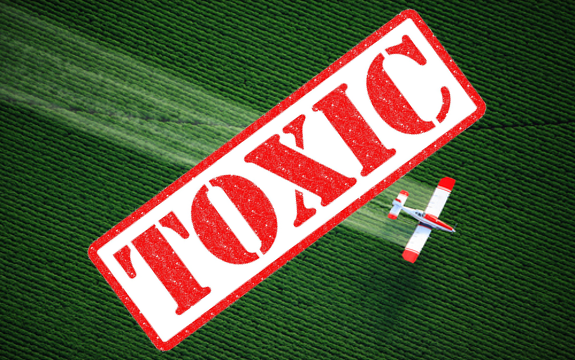Research Professor Begs EPA and USDA to Refuse New 2,4-D Herbicide

 Charles Benbrook writes to the EPA simply as a concerned citizen of the United States, but he has studied pesticides and herbicides for over 30 years. As the EPA and USDA consider the allowance of a second generation of herbicide use in 2,4-D chemicals (considering RoundUp and glyphosate have failed), he speaks for many concerned citizens who are tired of being poisoned by both AgroScience and the government institutions they hide behind.
Charles Benbrook writes to the EPA simply as a concerned citizen of the United States, but he has studied pesticides and herbicides for over 30 years. As the EPA and USDA consider the allowance of a second generation of herbicide use in 2,4-D chemicals (considering RoundUp and glyphosate have failed), he speaks for many concerned citizens who are tired of being poisoned by both AgroScience and the government institutions they hide behind.
2,4-D ((2,4-dichlorophenoxy) acetic acid) is a phenoxyacetic herbicide. It is most famous for its use, together with the herbicide 2,4,5-T, in Agent Orange. It ranks among the top 25 herbicides for use in agriculture in the United States.
In Benbrook’s letter, he humbly submits his credentials for presenting a counter-argument to AgroScience’s latest propaganda:
“I have conducted independent analyses of the benefits, risks, costs, and impacts of herbicide – tolerant crops, and other agricultural biotechnologies for 30 years. Some of the first National Academy of Science (NAS) reports assessing the future of agricultural biotechnology were done during my tenure as the ED of the NAS Board on Agriculture (1984 -1990). I have reviewed dozens of regulatory packages for past and present transgenic crops, published peer-reviewed papers on these technologies, and have tracked for over 10 years the impact of genetically engineered corn, soybeans and cotton on pest management systems and overall pesticide use.”
Read: 800 Million Pounds of Pesticides Can’t be Washed Off
He currently serves on the USDA’s AC 21 Agricultural Biotechnology Advisory Committee. He points to the EPA and USDA’s previous failures at regulating dangerous chemicals in our food supply, stating:
“Regrettably, many farmers, regulators, most academic weed scientists, and the pesticide-biotech industry largely ignored the warnings issued around the time herbicide-tolerant crops started their meteoric climb in market share. And regrettably, Roundup Ready (RR) technology has proven uniquely proficient in accomplishing what Monsanto had claimed would be almost impossible –generating glyphosate-resistant weeds.”
However, RR technology has also left the planet replete with superbugs, superweeds, and cancer with an ever-increasing addiction to more herbicide use. Benbrook reminds the agencies that it only took five years for this phenomenon of superweeds to become widespread. There are now glyphosate-resistant superweeds covering more than 70 million acres of crops, and varieties of super weeds growing more dauntless every day. Benbrook goes on to state:
“The decision now before the EPA, whether to register Dow AgroSciences’ new choline salt formulation of 2,4-D herbicide, is only a small piece of a large, complex puzzle. It is noneth less a critical decision point, and perhaps the last chance for the government to take actions hopefully sufficient to prevent a series of regrettable, and even possibly tragic, outcomes from occurring over the next several years.”
Read: 7 Nasty Effects of Pesticides
There are lethal and sublethal outcomes for using 2,4-D chemicals that will affect both people, and animals. The herbicide will not only hurt us, but also our pets and wildlife. It causes neurological disorders, kidney and liver damage, reproductive failure, disruption of the endocrine system, and numerous cancers. It will pollute our drinking water and cause damage that cannot be undone for decades, if possibly, ever.
You can read Benbrook’s full letter here, and also contact the EPA to tell them that 2,4-D should NOT be allowed in our environment, and that Dow and other makers of these herbicides should be stopped immediately. The public comments on the docket for 2,4-D Enlist were closed on June 30, but you can still contact your representatives and let them know you won’t be voting for them if this is allowed to pass.
You can also flood Dow Chemical Company’s headquarters with comments about their 2,4-D poison, too.
Furthermore, if you are a farmer, tell others about what these chemicals do, and encourage your fellow farmers to grow organic. The public supports you.
